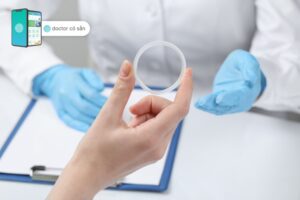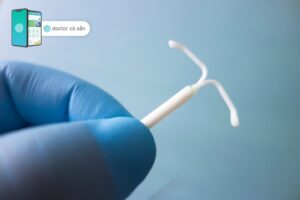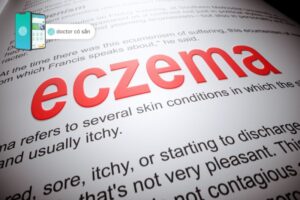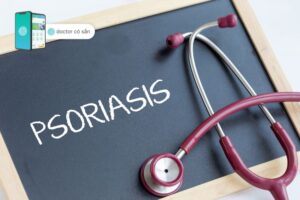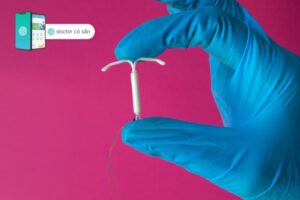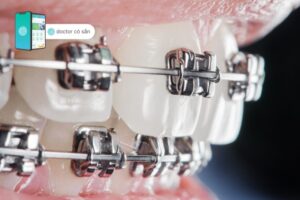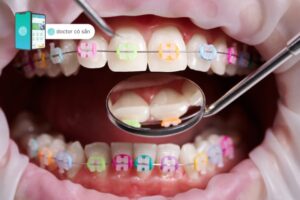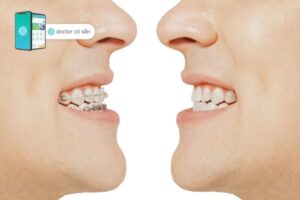HIV testing is the only method to determine the presence of the HIV virus in a blood sample. Early detection will help the patient receive appropriate and timely treatment, and prevent the transmission of HIV to others. To better understand the testing process and available locations, please read the content below provided by Docosan.
Tóm tắt nội dung
HIV/Syphilis home test with Docosan
Docosan provides a quick and convenient home test kit to determine if you are infected with HIV or/and Syphilis. The results are available immediately after a 15-minute procedure, involving a simple blood draw from the tip of your finger.
If the test comes back positive for HIV or Syphilis, or both, you will be connected with a specialist who will guide you on how to manage the disease and minimize any potential complications.
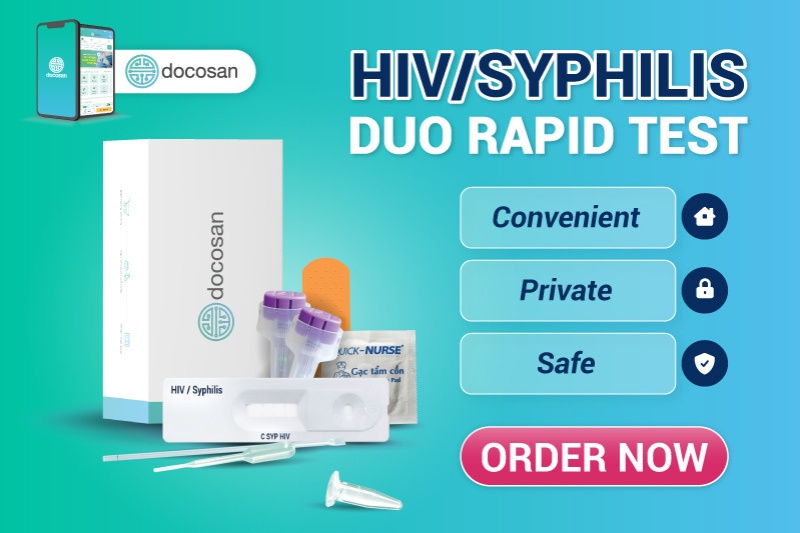
Who should get tested for HIV?
People should be tested for HIV at least once a year if they fall into a high-risk group, such as:
- Having multiple sexual partners
- Engaging in unprotected sex with someone who has HIV or is at risk for HIV
- Sharing needles or other blood-stained equipment that someone else has used, such as tattoo equipment or medical equipment
- Being tested or having been tested for tuberculosis, hepatitis, or sexually transmitted diseases like syphilis, gonorrhea, chlamydia, or herpes
- Receiving pre- or post-exposure prophylaxis.
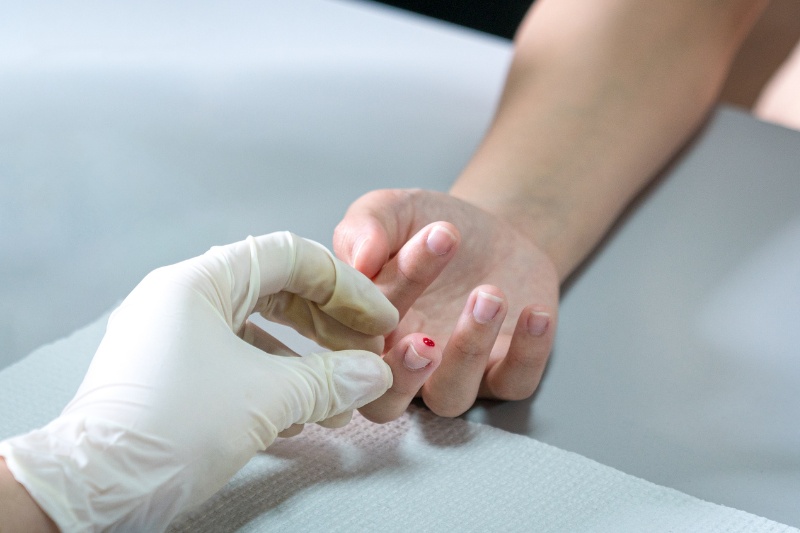
Common types of HIV tests
The most common types of HIV tests available today are:
Antibody screening tests
Antibody screening tests look for antibodies that your body produces 2 to 8 weeks after being infected with HIV. This is done through a marker immunoassay, also known as an ELISA (Enzyme-Linked ImmunoSorbent Assay).
Antibody/antigen combination tests
Antibody-antigen combination tests can detect HIV earlier than antibody screening tests by detecting the presence of both HIV antigen (a protein called p24, which is a part of the virus) and antibodies. The p24 antigen appears 2 to 4 weeks after infection and the test can detect both markers of infection.
Rapid antibody-antigen tests provide results in as little as 20 minutes.
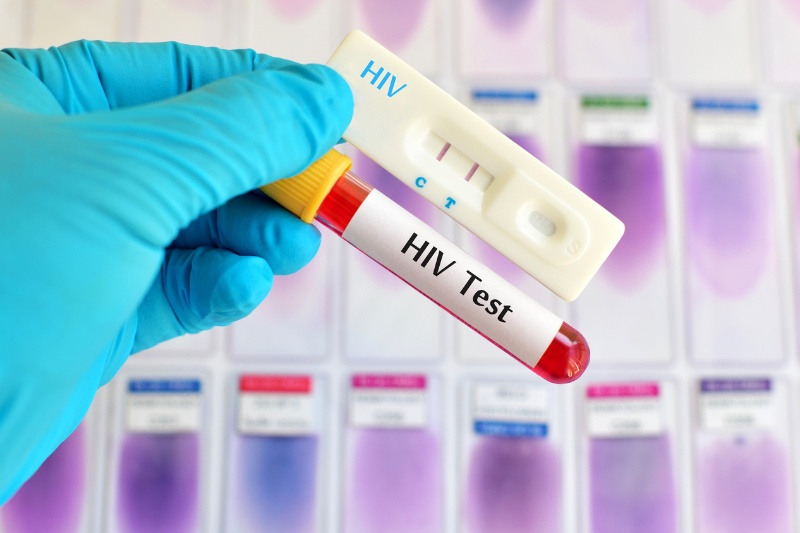
Nucleic Acid Test (NAT)
Nucleic Acid Testing (NAT) is another type of test that looks directly for the presence of the HIV virus. NAT can diagnose HIV as early as 10 days after infection, making it a highly sensitive test option.
Although NAT is more expensive than other tests, a doctor may recommend it if the patient is considered to be at high risk for HIV and presents with flu-like symptoms. This test, also known as an RNA test, is useful in detecting early stages of infection.
What do HIV test results mean?
A small amount of blood will be collected by a technician and sent to a laboratory for testing. In some cases, samples from the patient’s urine or oral fluids may also be collected, but these samples may not contain enough antibodies to produce accurate results, leading to false negative results.
With Docosan’s HIV/Syphilis home test kit, the patient can proceed the test at home with full instructions.
If the test comes back positive, the laboratory may conduct another test on a separate sample to confirm the diagnosis before providing a definite result.
HIV test result positive
A positive test result indicates the presence of HIV in the body. If the rapid test result is positive, a standard laboratory test may be recommended to confirm the diagnosis. If the lab test results are also positive, additional blood tests may be recommended by your doctor to further confirm the diagnosis, such as:
- Western Blot or Indirect Immunofluorescence
- A test to distinguish between HIV-1 and HIV-2 antibodies.
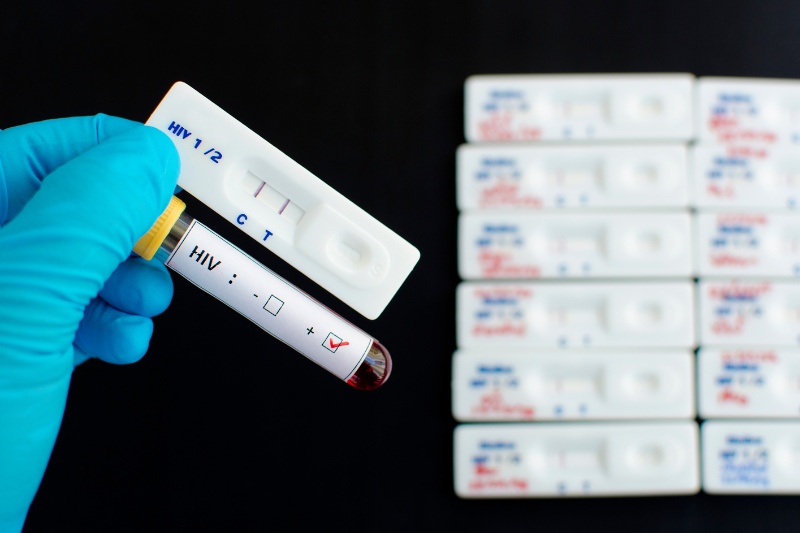
A positive HIV test result does not mean you have AIDS (the most severe stage of the disease).
HIV test result is negative
A negative test result means that you do not have a current infection with HIV or that it is too soon after possible exposure for the body to have produced enough antibodies to be detected. It can take up to 6 months for the body to produce enough antibodies to test positive.
If you have a negative test result 3 months after a suspected exposure to HIV, it is recommended to test again after 6 months to ensure the accuracy of the negative result.
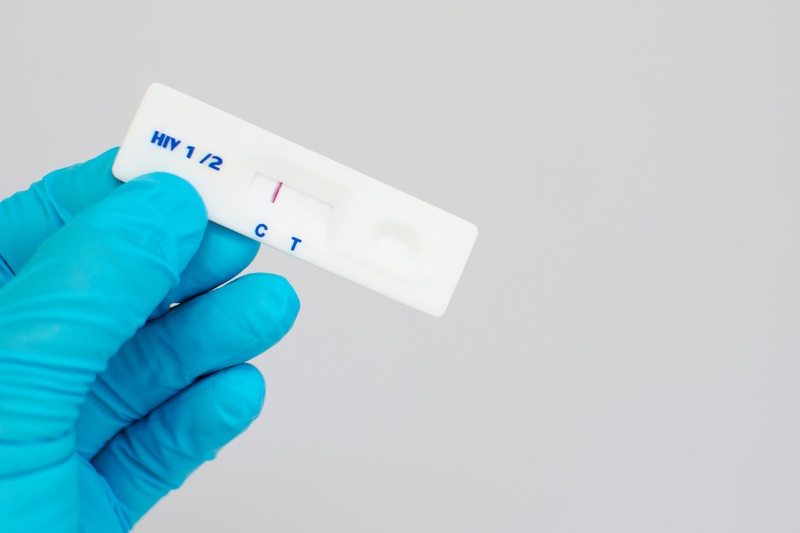
It is important to take steps to protect yourself from HIV by using safe sex practices or considering pre-exposure prophylaxis (PrEP) to reduce the risk of infection. You should consult with your doctor before using these preventive medications. Taking these steps can help you stay uninfected with HIV.
How much does an HIV test cost?
Normally, the cost of HIV testing is usually at a price ranging from 180,000 VND to 300,000 VND depending on the medical facility.
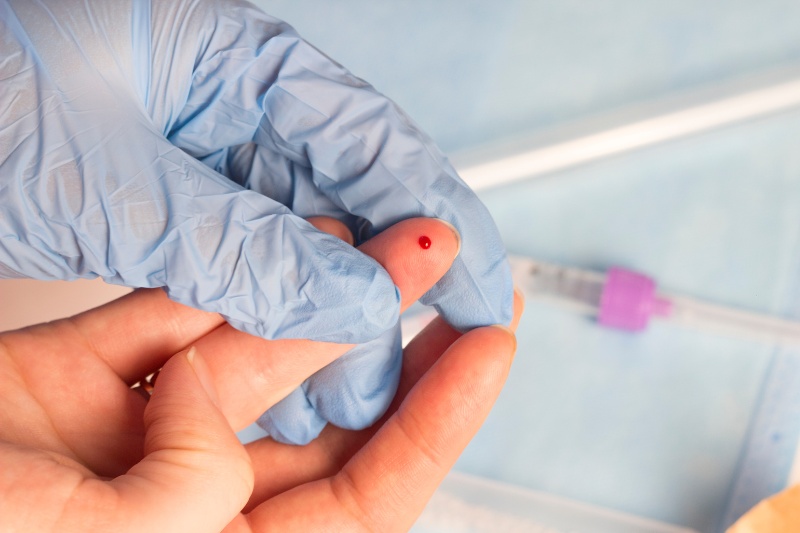
Getting tested for HIV is crucial, especially for those who are at high risk. Being proactive in getting tested will allow you to take control of your health if the result is positive and take appropriate measures to prevent infection. Early detection can help you receive timely and appropriate treatment and reduce the risk of transmitting HIV to others.
The article is consulted from doctors and reliable domestic and foreign sources.
- HIV Testing – Webmd



